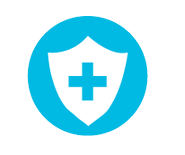Addictions programs consists of self-help (i.e. 12 step programs such as Alcoholics Anonymous or Narcotics Anonymous), residential or outpatient treatment facilities, harm reduction programs (including needle exchange programs, safe injection sites and ‘wet’ shelters), individual or group counselling, abstinence-only housing and support from community programs. People dealing with addictions issues may also seek mental health support or services from their primary care physician.
Management and treatment of addictions issues is best provided in a holistic context as there are often concurrent issues at play including mental health diagnosis, past abuse/trauma or physical health concerns. Client-centered support that allows for a partnership or collaboration between the client and practitioners can both empower and support people to make the necessary changes to achieve their treatment goals. Treatment may also be designed to help individual users as well as families, peer groups, communities, and society.
Housing First as a program is predicated on a belief that housing can be provided without any housing readiness requirements. Physical or mental health or addictions issues are often easier addressed once housed. As such, Housing First has a “recovery orientation” which supports individual well-being. Clients may chose to be placed in an abstinence-only housing setting to support their recovery but sobriety is not a requirement for housing.
Many programs that serve people experiencing homelessness who also face addictions challenges are embedded in the harm reduction model. This philosophy is designed to “meet people where they are at” and providing services and supports that best meet their needs. The goal is to reduce the risks and harmful effects of the individual’s addictive behaviours and substance use.
See our harm reduction section to learn more about this model.


